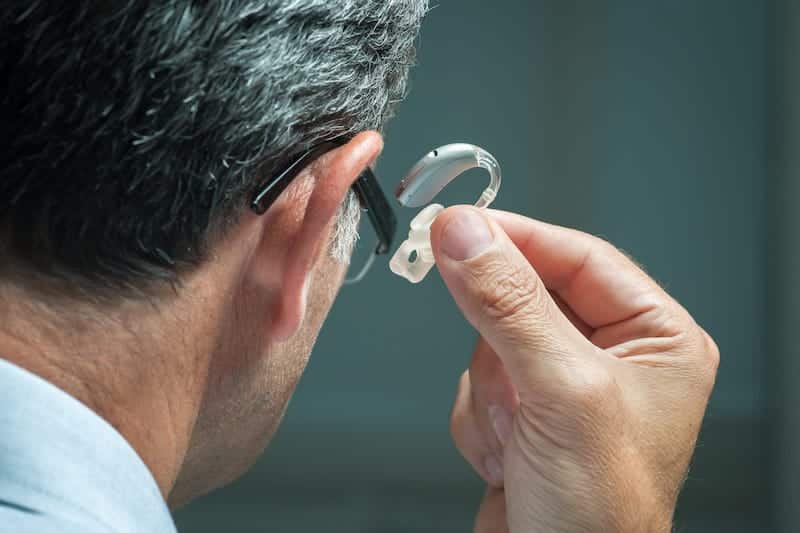A new study from Keck Medicine of USC found that adults who regularly used hearing aids to address hearing loss had a 24% lower risk of mortality than those who never wore them.
“These results are exciting because they suggest that hearing aids may play a protective role in people’s health and prevent early death,” says Janet Choi, MD, MPH, an otolaryngologist with Keck Medicine and lead researcher of the study, which was published in The Lancet Healthy Longevity.
Previous research has shown that untreated hearing loss can result in a reduced life span (as well as other poor outcomes such as social isolation, depression, and dementia). However, there has been very little research examining if the use of hearing aids can reduce the risk of death. The study represents a comprehensive analysis on the relationship between hearing loss, hearing aid use, and mortality in the United States, according to Choi.
Further reading: OTC Hearing Aids Aren’t Attracting Buyers Yet
Hearing Aid Use Study Results
Choi and her fellow researchers used data compiled by the National Health and Nutrition Examination Survey between 1999-2012 to identify almost 10,000 adults 20 years and older who had completed audiometry evaluations, a test used to measure hearing ability, and who filled out questionnaires about their hearing aid use. Researchers followed their mortality status over an average follow-up period of 10 years after their evaluations.
A total of 1,863 adults were identified as having hearing loss. Of these, 237 were regular hearing aid users, which were characterized as those who reported wearing the aids at least once a week, five hours a week or half the time, and 1,483 were identified as never-users of the devices. Subjects who reported wearing the devices less than once a month or less frequently were categorized as non-regular users.
Researchers found that the almost 25% difference in mortality risk between regular hearing aid users and never-users remained steady, regardless of variables such as the degree of hearing loss (from mild to severe); age, ethnicity, income, education and other demographics; and medical history. There was no difference in mortality risk between non-regular users and never users, indicating that occasional hearing aid use may not provide any life-extending benefit.
While the study did not examine why hearing aids may help those who need them live longer, Choi points to recent research linking hearing aid use with lowered levels of depression and dementia. She speculates that the improvements in mental health and cognition that come with improved hearing can promote better overall health, which may improve life span.
Choi is currently working on an AI-driven database that categorizes hearing aid choices and tailors them to individual patient needs. She also advocates for larger studies to further understand the link between regular hearing aid use and a lower mortality risk and to promote hearing care.
Photo: Dreamstime






Reduced mortality… good. But bear in mind a lurking hazard: when out walking, a highly directional HA may prevent you hearing a vehicle approaching from behind. This becomes even more critical with super-quiet electric cars and bikes.